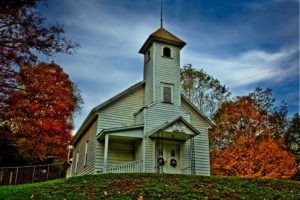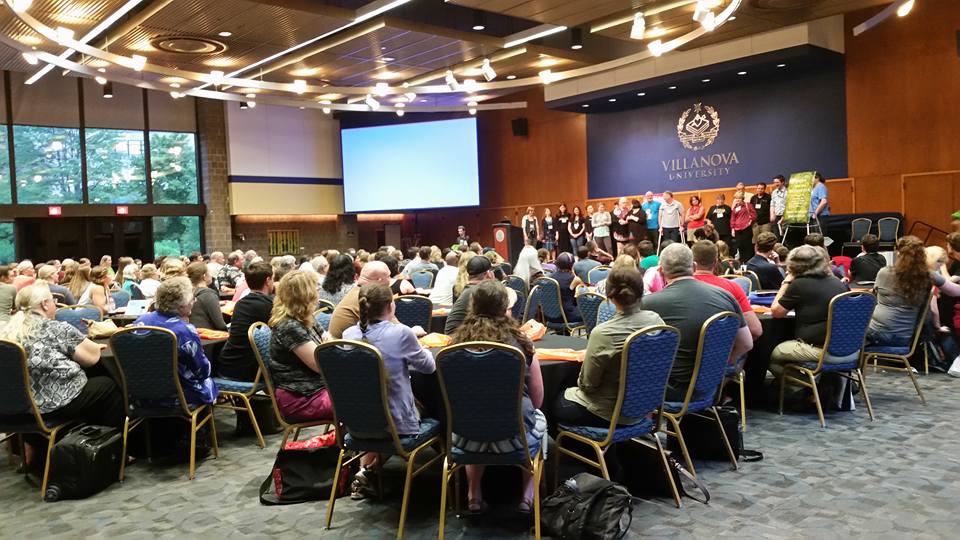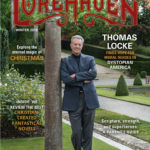Welcome to the World of Christian Fantasy
So you’re a Christian. And you love fantasy, science-fiction, or other speculative stories.
You might even particularly like these stories if they’re written by Christians.1
And of course, you might be thrilled to find that, as a Christian yourself, you enjoy writing your own speculative stories—either as a hobby or with longterm publication goals.
If so, then we welcome you, using whatever “geeky” expressions or quotes you prefer from your favorite fandom. However, the leading quote in my mind is Nick Fury’s (Samuel L. Jackson) caution to Tony Stark in the end-credits scene of Iron Man (2008):
You think you’re the only superhero in the world? …
You’ve become part of a bigger universe. You just don’t know it yet.
Now that you’re here, we at Speculative Faith have some advice for you—to help you take a quick course on this “world” as you meet your new neighbors who’ve built it over decades.
 World 1: Your local church
World 1: Your local church
If you’re a Christian, you’re called to an amazing mission. You’re called to partner with other Christian sisters and brothers in a thing (even an “institution”) called the Church.
It’s an incredible idea: a network of organized and diverse separated communities. Their members train to learn about Jesus’s nature and mission, how to love Him, obey Him, heal and resist the shrapnel of sin, and remember Him with singing, sacraments, and fellowship.
Lately the idea of Church, and those distinct “churches,” gets some resistance. Some like to claim churches have been filled with such bad creative work, even opposition to fantasy stories because of legalistic reasons, and sometimes even abuse, that we can minimize organized churches’ importance. Or maybe we can just stop going. I mean, we don’t go to church anyway because Church Is More Than a Building™ and we are the Church, right?
Christians must surely be sensitive to our different harms at the hands of bad churches.
But the “you can skip the join-a-church part” reasoning won’t work for at least two reasons.
First, from Scripture: Jesus’s apostles organized churches. They gave specific commands about qualified teaching elders, deacons, money collection, singing, the Lord’s Supper and more. So the church is more than just “Christians hanging out doing Christian things.”
Second, from logical consistency: if we reject, say, buildings or organization because people misuse these, couldn’t other Christians be right to reject fantasy due to its misuse too?
Of course we can’t simply suggest “get a church!” as if it’s that easy. A decent local church can be hard to find. Many churches are so desperate for Methods to pack in Populations that they fail to appeal naturally to individuals (to say nothing of the Lord they need to please first anyway). But even if you’re stuck without a local church home for now, stay open in case God—perhaps through family or friends—leads you to the right local church.
World 2: Other Christian fantasy readers
Anecdotally, it seems fantasy fans like to write similar stories, more than fans of other book genres like biography or mystery novels. Chances are you’re a writer of some kind yourself.
But we can’t overstress the value of thinking first as a fan and reader of fantastical stories.
 For fans who don’t care for writing, that’s easy. But if you’re a writer, you may need a little more coaxing—especially if you’re in “first day on the internet” kid mode, and everything looks so shiny, and you just can’t wait to reveal you’re a Christian! who writes! fantasy!
For fans who don’t care for writing, that’s easy. But if you’re a writer, you may need a little more coaxing—especially if you’re in “first day on the internet” kid mode, and everything looks so shiny, and you just can’t wait to reveal you’re a Christian! who writes! fantasy!
If you think as a fan first, you’ll help preserve your natural passion for stories whenever the writing proves frustrating (especially if you’re trying to do this professionally). You’ll resist becoming a fallen Writing White Wizard, who delved too deep into industry secrets and may have a mind of marketing metal and stylebook wheels. And you’ll connect with other non-writing Christian fantasy fans whose passion will help reinforce your passion.
Honestly, you’ll need that fan-passion because right now, no Christian publishers are investing seriously in fantasy writers. It’s really not even their fault. It’s due to lack of readers. But if we grow this generation of fan enthusiasm … what could we do then?
For any such fans, we recommend SpecFaith’s sister project, Lorehaven. We’re exploring new Christian-made fantasy through book reviews and book clubs. Our first digital magazine releases in a matter of months. But we’ve already begun work to recruit readers to get involved and start book clubs (such as my own for Firebird in Austin, Texas).
World 3: Existing groups and websites
Finally, we recommend becoming a fan of the many communities throughout the real world and the internet, to encourage and equip Christian fans of fantasy.
 We mentioned the new Lorehaven project—an affiliate of this website.
We mentioned the new Lorehaven project—an affiliate of this website.
This ministry of Speculative Faith has been operating (with one interruption) since 2006.
And since 2013, Realm Makers has grown to power the craft side of Christian fantasy. Each year the conference draws authors, aspiring writers, agents, publishers, and more fiction professionals for three to four days event, such as this year’s event July 19-21 in St. Louis.
Realm Makers also announced a new membership program. It drops conference expense and comes with many more perks to help fantasy writers sharpen their skills.
What if you’re not a writer? You should still come to Realm Makers. You can geek out, meet authors, get stacks of books and collectibles, partake in the Nerf War, and join all the fans of Jesus and fantasy for a cosplay dinner during the book awards announcements.
Yet this world is far bigger than Speculative Faith, Lorehaven magazine, and Realm Makers. Many great resources exist for Christian fans (and writers). We can even add them below.
What’s your resource?
What stories do you love?
What stories might you write?
We’d love to know you, and join your world with all of ours’, for our own Author’s glory.
- For my part, whenever I say “Christian fiction,” I mean “fiction by a Christian.” This includes room for both overt Christian concepts and language, and more subtle expressions of these. ↩











































Thanks for writing this 10,000 foot view of what a vision for Christian speculative fiction could be. I’m anxiously awaiting the release of Lorehaven’s first magazine.
Regarding the definition of “Christian Fiction” have you read “Art and the Bible” by Francis Schaeffer? I’d highly recommend it for inspiration and for some great theological exploration of what themes properly constitute Christian art.
Keep up the great work!
Is that Francis Shaeffer pere or fils?